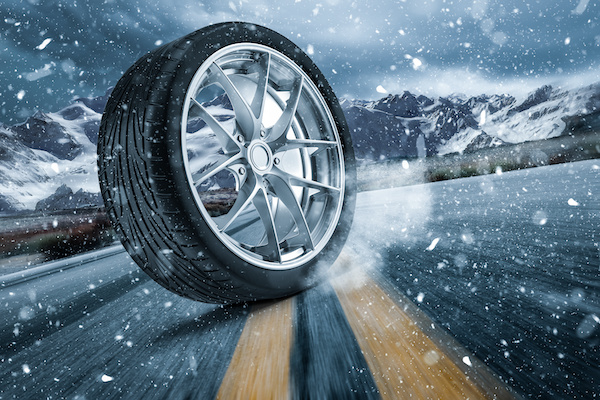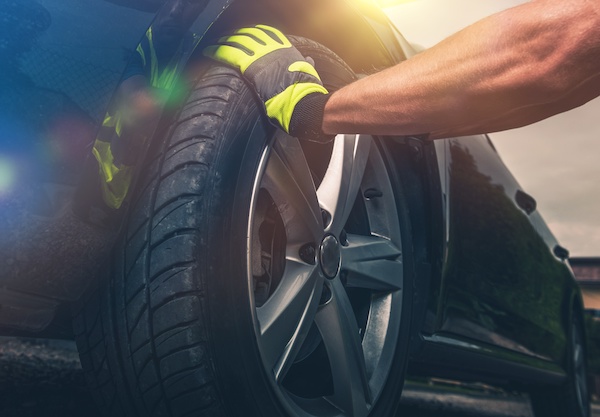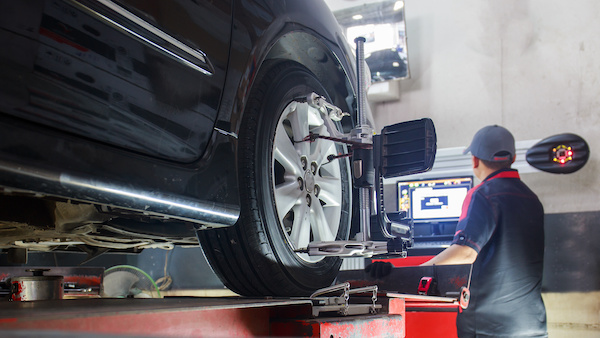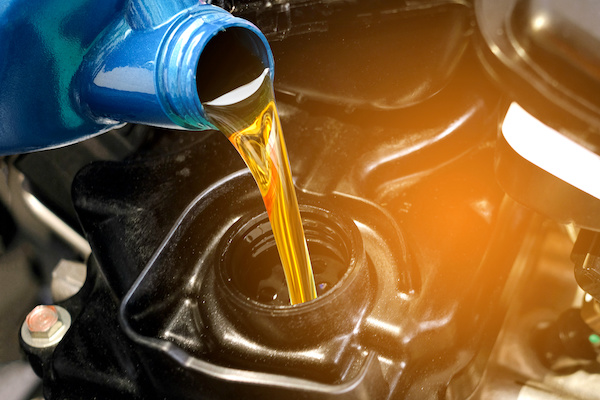Posted on 11/29/2021

When it comes to winter tires and standard tires, the biggest difference between the two is their tread. On winter tires, the tread depth is approximately 8-9 mm rather than 7-8 mm on a regular tire. Winter tires also have broader and deeper grooves within the tire tread, which better pushes through snow and wet weather conditions. Another important feature of winter tires is that they are made with more natural rubbers and silica. These materials don't harden as much as synthetic rubber in cold weather, enabling better gripping to the road. Reasons to Purchase Winter Tires: Winter tires are not only suitable to use in snow or ice-covered roads, but they are overall effective for cold weather. When the temperature drops, tires get tougher, which reduces road traction. Winter tires provide better traction due to softer and more flexible rubber. Using winter tires can extend the life of your regular all-season tires since you will only be using your winter tires during the ... read more
Posted on 10/26/2021

A tire rotation is an auto service that involves repositioning a car's tires in different patterns. Tire rotations are vital to both your vehicle and your safety. Often, your car manufacturer may require you to get this done to keep your warranty valid. Your vehicle's manufacturer sets the time to which you should rotate your tires. However, the industry rule of thumb is every 5,000 miles or every oil change. Getting both of these services done at once will make it easier to remember. Why Is It Important? There are many advantages to tire rotations. They include: Evens Out Tire Wear Promotes Even Treadwear Improves Vehicle Handling Improves Fuel efficiency Prevents Tread Cupping Minimizes Tire Noise and Vibrations Keeps Auto Costs Down By regularly rotating your tires, wear is evenly distributed across all of your tires. As a result of more even tread, you can extend the life of your tires. Routine tire rotations can significantly dec ... read more
Posted on 9/28/2021
.jpeg)
Regularly inspecting your vehicle's fluids is the best way to keep it running at optimal performance. Your vehicle's owner manual most likely states where fluid levels should be and at what intervals they should be topped off, refilled, or flushed. Staying aware of your fluid levels and when they are approaching empty can help prevent significant damage to your car's various systems. Below is a quick guide on your vehicle's five essential fluids and how they improve your car's efficiency. Engine Oil Engine oil is the most frequent service, and it gets used up quickly for a reason. Motor oil is essentially a lubricant for the engine's parts. It also reduces friction and prevents corrosion. By minimizing the friction, the heat gets dispersed evenly throughout the engine. It's vital to inspect the oil because it can pick up dirt, dust, and debris over time, which will reduce its effectiveness. Coolant/Antifreeze Since your engine can get to scorching ... read more
Posted on 8/23/2021

If you notice that you keep veering right or left when driving, you may need a vehicle alignment. By getting this type of service done, you're ensuring a smoother and safer ride, all while extending the life of your wheels. Your car has four wheels, and all of them should be adjusted for alignment, right? Not exactly. Your vehicle may simply only need a front-end alignment. Front End Alignment versus Wheel Alignment Alignment is the arrangement of the suspension system that assists in supporting and turning the vehicle properly. Wheels must be in perfect alignment for all tires to work simultaneously by rotating in unison and traveling in the same direction. A slight divergence in the angle of your wheels can negatively affect the suspension system causing irreversible damage and premature tire wear. A front wheel alignment, also referred to as a 2-wheel alignment, means the alignment only takes place in the front wheels so that they run parallel to the center of ... read more
Posted on 8/13/2021

Engine oil is essentially the bloodline of your vehicle. It's the key substance to keep your engine happy and running for hundreds and thousands of miles. Oil changes are an essential and routine part of car care that should be your number one priority! But why do automobiles need oil changes, to begin with? What Does Oil Do for a Car? The primary role of motor oil is to grease up the moving parts of your engine. Since an engine has so many complex and fast-moving features, engine oil is required to keep running smoothly by reducing friction and wear. Otherwise, they would grind against each other and cause damage. Furthermore, a well-lubricated engine produces an intense amount of heat. That's why another significant function of engine oil is to extract the excess heat away. Without engine oil, your car would constantly overheat and not run at all. Skipping routine oil changes can have threatening consequences for the health of your car and can even lead to c ... read more